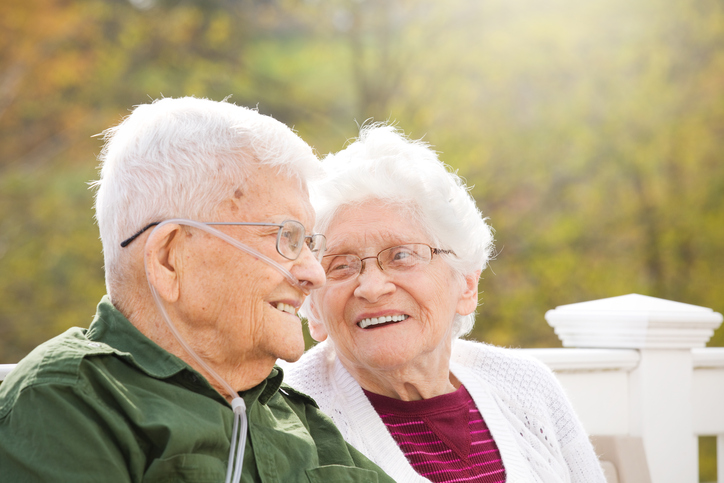
With more than 11 million people in America alone presently clinically diagnosed with COPD (chronic obstructive pulmonary disease), we at Absolute Companion Care, we know firsthand the complexities and struggles associated with the airflow restrictions – and as a result, the lifestyle restrictions – that older adults with the disease face every single day. It’s important for family caregivers to understand what to expect in each stage of this progressive disease, and how to assist those with COPD to effectively control their condition and live life to their fullest potential.
We’ve outlined the four stages of COPD below for your information, together with the suggestions from the Lung Institute on steps you should take to make sure your elder loved one remains as healthy as possible.
Stage 1: Mild COPD
Through this stage, it might not even be clear that there is a problem aside from experiencing some coughing and phlegm, and slight breathing limitations when performing day-to-day activities. Despite the fact that the symptoms may appear minor, it’s important for the elder to see the physician as soon as possible, so that if a COPD diagnosis is confirmed, a treatment plan can be implemented. The physician may prescribe medications as well as lifestyle changes – specifically giving up smoking, following a healthy diet plan, and exercising. Alternative treatment solutions, such as acupuncture, chiropractic care, and cellular therapy, might also be tried.
Stage 2: Moderate COPD
With moderate COPD, coughing and mucus are increased, while airflow is becoming more constricted. Lung capacity during this stage has dropped to anywhere between 50 and 79%, and physical activity leaves the senior feeling out of breath. Medications will possibly need to be adjusted in this stage, and pulmonary rehabilitation could also be suggested by the doctor, helping the individual optimize breathing efficiency.
Stage 3: Severe COPD
By the time an elder reaches the severe stage of COPD, the condition will have intensified and extensive impairment of lung function is in place. Exhaustion and breathlessness increase, making it daunting for the individual to remain active, and frequent medical appointments may be required. Additional pulmonary tests will help the physician monitor the advancement of the disease and to incorporate additional treatment options to increase quality of life, such as oxygen, inhalers, and bronchodilators.
Stage 4: End-Stage COPD
In the end stage of COPD, lung function has diminished to 30% or lower, and oxygen therapy will be necessary. Simple activities of daily living become daunting or impossible to undertake without exhaustion and breathlessness. The doctor will want to keep a close eye on the elder during this stage, altering the treatment plan to help the individual maintain the highest possible quality of life. Activities such as tai chi or yoga might be advised to help the elder remain active while remaining comfortable.
One of the best ways to help elders throughout all stages of COPD, and the families who care for them, is by partnering with a professional in-home care agency, such as Absolute Companion Care. We assist those with COPD by:
- Planning and preparing healthy meals as per any dietary restrictions
- Offering safe, accompanied transportation to medical appointments and procedures
- Helping elders engage in physician-approved exercise routines
- Maintaining a clean home environment
- Providing warm, caring companionship
- And so much more
Contact us any time at 410-357-9640 to learn how we can help throughout all stages of COPD with professional home care in Lutherville and the surrounding areas.
